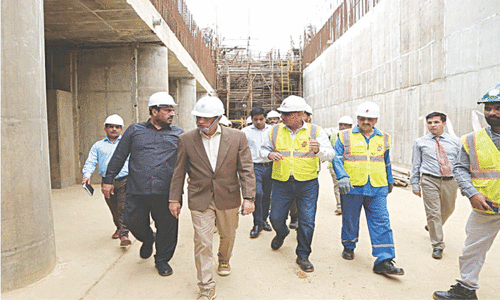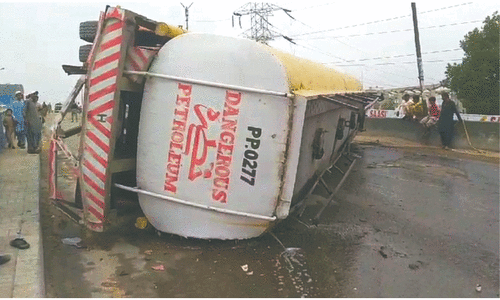KARACHI, Dec 15: The Sindh health authorities and international coordinators have expressed concern over the increase in the number of polio cases detected this year and called for revisiting the routine preventive vaccination programme and polio immunisation activities. Need for strict monitoring, performance evaluation and accountability at all levels was stressed to obtain better results of the healthcare initiatives.
These recommendations were made at a consultation programme, which was organised by the Expanded Programme of Immunisation, Sindh, in collaboration with the World Health Organisation, Unicef and the Association of Health Journalists Pakistan on Thursday.
“I personally feel it’s about time that policymakers and technical managers of the anti-polio schemes re-examine their recommendations and strategies for polio eradication,” said Sindh Health Minister Dr Sagheer Ahmad, who was chairing the session.
It was embarrassing that now Pakistan, particularly Sindh, was being blamed for exporting polio virus to other countries, he said.
The minister said it was a matter of concern for him, other high-ups in the government and international donors that the number of reported polio cases increased this year despite having achieved vaccination coverage of 95 to 100 per cent children below five years during the last few national and sub-national polio immunisation campaigns in the province.
Earlier, the journalists were informed that the polio situation in Pakistan, especially Sindh, had become critical, with 62 per cent (173) polio cases reported in four polio-endemic countries including Pakistan. Of them, at least 30 polio cases were reported this year in Sindh only.
About routine immunisation, a couple of speakers agreed that the real coverage rate of vaccination against measles, polio and other diseases ranged between 52 and 56 per cent. In various districts of Sindh, they said, it remained on the decline during the previous two years and showed an upward trend only this year.
The health minister said that vaccination history of children suffering from polio, whose cases were reported this year in Sindh, provided ample evidence that many of them had missed routine immunisation drops in their infancy. This was cited by experts as the basic reason behind the absence of immunity in children against the dreaded virus, he said, insisting that it was not true that the EPI or district health authorities did not conduct quality polio campaigns.
He said that the Sindh health department could not be blamed for the routine immunisation failure.
He said there was a need to streamline the working of primary and secondary healthcare centres, vaccination activities and federally-run health initiatives.
In a situation when an essential component of health programmes, the primary healthcare and routine immunisation were not in the domain of the provincial health department, how could one expect the health department to perform up to the mark against the preventable diseases, he questioned.
The minister urged the federal government to devolve the health institutions, funds and management of various schemes, including the primary healthcare set-ups, exactly in the sprit of the 18th constitutional amendment.
He also did not approve a proposal regarding the outsourcing of polio eradication campaigns to NGOs and said that the quarters concerned should make efforts to remove the discrepancies in micro-planning pertaining to both the polio and routine immunisation schemes.
Sindh Health Secretary Syed Hashim Raza Zaidi, provincial health services DG Dr Hafizul Haq Memon, Sindh EPI Manager Dr Mazhar Khamesani, WHO team leader in Sindh Dr Jameel Yousef and Unicef communication for development specialist in Sindh Raabya Amjad were also among the panellists.
Shortage of female staff
Identifying some hindrances in the implementation of polio plans, Dr Memon complained about the shortage of women workers in at least 30 per cent polio teams.He also highlighted the need to take steps to strengthen the routine immunisation programme in the province by introducing due provision in it for the evaluation of performance of relevant quarters.
Dr Yousef said that there could be no justification for the number of polio cases reported in Sindh and those in the country. It was not difficult to eradicate the virus at least in the case of Sindh, he said, while laying emphasis on bringing a change in the attitude of polio workers, supervisors, government officials and communities.
Dr Khamesani said that the World Health Organisation had decided to do away with the outcome data obtained after sweeping activities.
In future, the organisation would assess the performance just on the basis of coverage rate determined after the three-plus-one days of polio campaigns and catch-up activities, he said.
He said the government had also reached decisions to penalise officers concerned if a child infected with polio virus was found to have skipped the routine immunisation.














































Dear visitor, the comments section is undergoing an overhaul and will return soon.